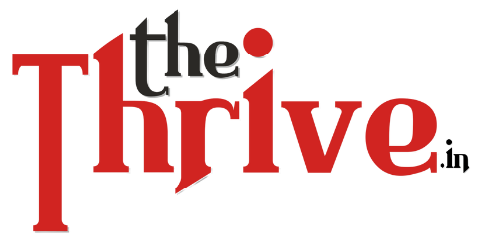From logos to slogans, copyrights and trademarks are essential to modern business. By leveraging exclusive rights on things such as account titles, products, and works of art, businesses can safeguard their reputation and identity.
Through copyrighting literature, music or software, businesses gain the security of preventing others from profiting from their ideas or inventions. With trademarks, businesses avoid brand dilution while distinguishing their goods in the minds of consumers.
By not only establishing ownership but also limiting replication of original works without permission, copyrights and trademarks help create a secure platform for conducting business transactions. Furthermore, they foster a level of trust between buyers and sellers by setting standards for uniform quality that helps ensure consumer verification of authenticity.
In today’s scenario, as a business owner, it is essential for one to understand the importance of the role that Intellectual Property Rights play in conducting smooth business transactions in the market. Though intangible in its nature, it is one of the most important business assets.
The Intellectual Property Rights and the importance that they hold in business transactions. Though each of them is important in itself, this article will help you to focus on the role of copyrights and trademarks in business transactions.
Copyrights and trademarks, both terms can be referred to as the central part of business transactions, as both instill a sense of security in the minds of the target consumers and business owners.
Though both terms are proof of the originality of the work of the business, it is relevant to note that the two defend discrete business concepts. They both cannot be referred to interchangeably.
Usually, copyrights guard the original work or rational works of the company, while other hand trademarks guard the commercial identity of the company.
The role of copyright is mainly to defend the rights of the business of its intellectual works such as fictional, theatrical, musical, and creative works. And in the case of a Trademark, it plays the role of defending the usage of the name of the business and its brand identity.
Protecting online assets with the proper intellectual property is critical for the smooth operation of any enterprise. Knowing the myriad rules and regulations surrounding copyrights and trademarks will provide stability for your business's reputation at home and abroad.
Copyrights in business transactions
Copyrights the law grants certain rights to originators or you can say the owner of every literary, artistic, and musical work, to safeguard their original and creative work from being copied or exploited by any other third party without their permission. These rights are known as copyright.
The role of copyright is to protect any form of expression. They are very important for running a successful business, as they are used for protecting every business’s original and creative content works including advertising, sales brochures, promotional materials, videos, images, instruction manuals, photographs, and website content, from being used by any other third party without the business owner’s due permission.
Copyright not only plays a crucial role in protecting the creative work and the original work of the business but also in promoting the business and reaching out to the public at large.
As copyright owners in simple words, business owners have the right to control how their work is supposed to be reproduced, distributed, and showcased publicly. But most importantly, they can stop others, especially their competitors in the market from using those sorts of works or content that are substantially similar to their copyrighted work.
Copyright protections explained
In the U.S., copyright protection is exactly outlined in our Constitution. In Article I Section 8 of the Constitution, normally called the "Copyright Clause," the founding fathers formally recognised a group of rights protecting authors or the owner and their many forms of original expression—basic rights under copyright.
Copyright, a form of intellectual property law, protects the original works of the author or owner of the things such as including literary, dramatic, musical, and artistic works, such as poetry, novels, movies, songs, computer software, and architecture.
A few of the benefits of Copyright
- A public record of the copyright holder's ownership is created by copyright protection.
- The copyright holder is able to sue infringers in court thanks to copyright protection.
- It is possible to present sufficient evidence in court regarding the validity of the copyright and the information contained in the certificate of copyright if the legal action is initiated prior to or within a predetermined time frame from the publication date.
- The copyright owner can file a claim for statutory damages in a high court if registration is made within a short period of time of the person's work or prior to the infringement of the copyrighted work. Only an award based on actual damages and profits will be made available without the process registration, which can be difficult to prove in court.
- Allows the owner of the copyright to record the registration with Indian Customs to protect against the importation of copies that violate the copyright into India.
Trademarks in business transactions
A trademark is anything that helps in identifying and distinguishing the goods and services of a business from those of others in the market which have already established the business.
In the business world, a trademark is commonly referred to as a brand name, symbols, logos, and taglines that the business owners use, in order to establish the image of their product or service in the eyes of consumers.
These days, consumers are overpowering and constantly exposed to business trademarks in their ordinary lifestyles.
You can take the example of - Coca-Cola, Nike, Boost, Band-aid, LG, and Jacuzzi, to name a few; consumers subconsciously regard these trademarks as the actual products/services that they are offered, rather than their respective brands.
This is the power and importance of having a trademark. These strong companies were not born with this monopolistic association between their brands and the products/services that they provide to consumers.
Not only did they think up a name, symbol, design, or logo which resonated with their business concepts, additionally they got their intellectual property registered as a trademark.
A trademark is one of the most important assets that a business will ever own because it helps a business to identify and distinguish the business in the market and its products/services in the marketplace from its competitors.
It is absolutely important to the success of every upcoming and ongoing business in the market. Therefore, it is crucial for every business owner to take a sufficient amount of action to protect and enforce its trademark today.
Trademark law helps consumers in the marketplace to easily recognize products even from a distance. As trademark owners or business owners, you can say you have the right to stop others, including their competitors in the market from using their trademark or any mark that is deceptively similar to their trademark and can cause confusion in the minds of target consumers.
Trademark protection encourages three main policies- defence of the business owner’s goodwill, the image, and the efficiency of the economy.
Trademark protections explained
Created by Congress in 1946, the legal protections of trademarks are newer than copyrights. Although commonly viewed as protection for brands and their commercial interests, at the time they were legislated, trademarks were also seen as protection for consumers.
In order to protect the interests of the consumer, a trademark prohibits the use of a known mark or brand by a person other than the trademark holder. In order to establish the boundaries of trademark protection, a court looks at whether or not a consumer is able to need clarification on the use of the brand or symbol.
A few of the benefits of Trademarks
- The trademark acts as an effective communication tool for the business in a non-tangible way.
- Image or logo, trademarks can convey intellectual and emotional attributes and messages about the business owners or their business, their reputation in the market, and the products and services they offer.
- Trademarks make it easy for target consumers to find business owners. The marketplace is crowded and it’s hard to distinguish a business from its competitors in the market.
- Customers viewing the trademark immediately know who they are dealing with, and it also works as a reputation of the business and is less likely to look for any other alternate products/services.
- Trademarks let businesses utilize the Internet and social media effectively.
Difference between Copyright and trademark
Copyright | Trademark | ||
|---|---|---|---|
|
| ||
2.It defends the rights of the people who originate or create. It is valid for up to 60 years for individual owners. | It defends the unauthorized use of company brand value, name, and logo. It is good for up to 10 years. | ||
3.There is no obligation to use the “C” symbol for copyright after | It is mandatory to use the “R” symbol after registration and during usage. It is |
Copyright | Trademark |
|---|---|
registration. It is governed under the Copyrights Act, of 1957 coupled with the Copyright Rules, of 2013. | governed under the Trademarks Act, of 1999. |
Summary
A copyright protects the shape of the content itself instead of the topic matter of the writing or the name or logo contained within the creative work.
Copyrights are often accustomed to protect your company’s original content creative works such as sales brochures, advertising and promotional materials, videos, instruction manuals, photographs, and website content from getting used by another third party without your permission.
On the other hand, a trademark is one of the foremost important business assets that a corporation will ever own because it identifies and distinguishes the corporate and its products/services within the marketplace from its market competitors.
Therefore, it's good practice for all business owners to need sufficient action to guard and enforce valuable business trademarks. As a trademark owner, you'll stop others, including market competitors, from using your trademark or a confusingly similar one.
FAQ's on Business Transaction
Copyrights protect a creator's work from unauthorised duplication or use. Through the Copyright Act Public Performance, nobody can copy, imitate, or produce another work if the work gets protected by Copyright Registration.
Patent, copyright and trademark are all types of intellectual property rights that provide the creator with an exclusive right over the use of his/her creation of mind for a limited amount of time.
Copyright not only protects databases but also software, website design, and creative content such as text, images, audio, videos and graphics.





